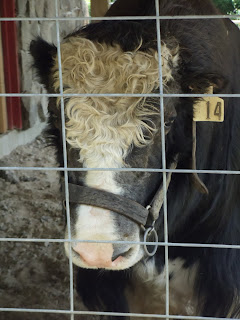http://open.salon.com/blog/bernadine_spitzsnogel/2012/06/11/teach_a_man_to_fish
The pictures below go with the link above on my Open Salon blog which is being persnickety this morning and not allowing me to load pictures.
It's a cliche but it is also true, "Give a man a fish and he eats once, teach a man to fish and he eats for a lifetime."
This is the philosophy of Heifer International, a global organization founded after World War II by a dairy farmer who visited Africa. He noted many relief organizations with the "swoop and drop" form of charity, bringing milk to impoverished villages.
He immediately knew there was a better way and he formed Heifer International, which today provides animals to people in need all over the world. The group originally gave heifers, a young female bovine that hasn't "calved" yet (given birth). She would provide milk for a family, or perhaps a group of families.all
Today the organization provides animals all over the world, and not just cows though the original name stuck. From North Carolina to the Near East to Africa, Heifer provides whatever animals are needed in a particular country. I know about this because my family has supported this organization for a number of years. My aunt originally started giving to Heifer as Christmas gifts. Have you ever received half a goat for Christmas? Well, I have. And I've given chickens.
Heifer provides animals from the country it serves. Of course it would be difficult to ship animals thousands of miles away, and there are rules and regulations and diseases to think about.
Almost more important than the animals is the leadership training Heifer provides in a community. I'm not familiar enough with the program to give specifics, but my sense is that it is a Peace Corps like organization, except that all the trainers come from their countries of origin. They teach the families how to properly care for the animals as well as understand the concept of "pass on."
"Pass on" means that families agree to give the first female offspring of an animal to a neighbor. Thus the gift lives and helps build community. Think, for example, of what a cow can give a community, milk, meat, manure for fertilizer, and cowhide.
On Friday we visited the Overlook Farm in Rutland, Massachusetts, an educational center and farm used to share the Heifer message. We were given a golf cart tour by Paul, the education manager, a former Peace Corps volunteer whose passion almost outshined the bright June day. Set in the foothills of the Berkshires, the farm has a barn with animals like those given all over the world, sheep in every shape and color, a horny male yak and his bride, free range chickens and Pudge the dog.
Paul drove us around the Global Village, a demonstration area used for tours and children's camps. A hut made of yak hair demonstrated where Nomadic peoples of the the Himalayas live. An African house was filled with trinkets and maps brought back to the States by Heifer workers. A house like those in rural Poland highlighted the culture of a region still desperately poor.
The three of us left renewed with a spirit to support this worthwhile organization, which reaches people in need throughout the globe not with merely a hand out but a heart full.





